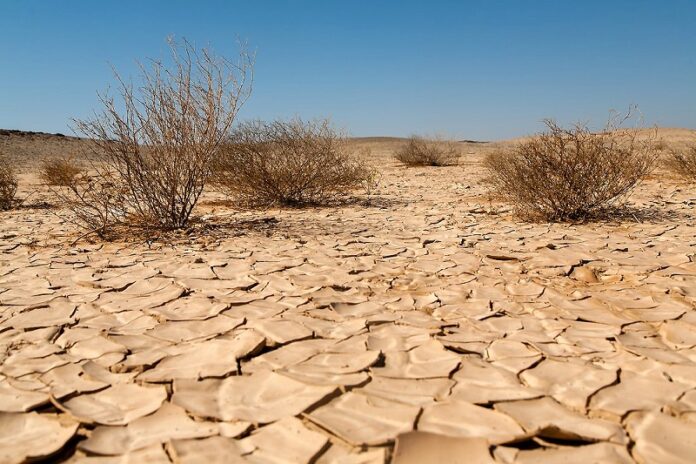
By Sheikha Suhaila Fahad Al-Sabah
Managing Editor
Time is of the utmost urgency when it comes to addressing global climate change, but time is also what the world is fast running short of in tackling this challenge. As the planet hurtles towards a potential global catastrophe, we no longer have time to waste pursuing bumbling responses, or half-hearted measures to reduce the use of fossil-fuels and adopt cleaner renewable energy sources.
We need resolute and concerted efforts to mitigate and adapt to climate change repercussions, as well as to curb and cut the use of fossil fuels. We need responses that are informed by scientific findings and implemented in a structured, time-bound manner. And, we need these actions now, preferably through consensus of all concerned, if not, then enforced through trade sanctions, tax levies and other persuasive measures.
Economic considerations and vested interests that have for far too long hampered the implementation of meaningful responses to climate change, should not be allowed to continue diluting and dictating the course of climate actions. Existential threat of climate change overrides any economic or financial concerns; this is not rocket-science, it is pure common-sense.
It is not that the world does not have the knowledge, or the adequate tools to confront and triumph over climate change. It is just that we have time and again allowed ourselves to be befuddled by specious, pseudo-scientific claims made by sponsored scientists that aim to discredit and contradict scientific consensus. We have also been sidetracked by spurious arguments propounded by climate change deniers and their handlers who seek to delay or thwart effective measures in addressing causes of climate change.
Two reports published in the first half of this month, underline the global community’s continued failure to address climate change despite its existential threat to survival of the planet and people. The first, a ‘Production Gap Report’ published by the United Nations Environmental Programme (UNEP) in early November, highlights our persistent inability to adequately curb fossil fuel emissions.
The second report, an assessment of national plans to combat global warming, released by the UN Climate Change (UNCC), reveals how far off-course the world is, in limiting temperature increases to that agreed upon at the seminal climate conference in Paris in 2015. Together, the two reports underscore our apparent ineptitude in addressing the risks that aggravate and accelerate climate change.
The 2023 Production Gap Report, under the evocative title of ‘Phasing down or phasing up?’, paints a bleak picture of our response to addressing the most significant component behind climate change, our ravenous appetite for fossil-fuels. The annual Production Gap report tracks the discrepancy between planned production of fossil fuels — coal, oil and gas — by countries, and the global production levels that could limit global warming to 1.5 degrees Celsius (°C) as specified in the Paris Climate Agreement of 2015.
The Report reveals that governments are on track to produce more than twice the amount of fossil fuels in 2030 than would be needed to limit the global temperature rise to 1.5°C, literally doubling down on their fossil fuel production. Global production levels of coal, oil, and gas estimated from plans and projections made by governments would be respectively 460 percent, 29 percent, and 82 percent higher than those under a 1.5°C-consistent pathway. The plans also contradict the stated climate mitigation policies and pledges made by many of these countries.
The report underscores the wide gap that exists between the world’s fossil-fuel production plans and its professed goals of reducing global warming. It is also a startling indictment of our climate carelessness, as well as our unbridled consumption and wanton pursuit of fossil fuels in blatant disregard for the future of the planet and of generations to come.
In his message on the ‘Production Gap Report’, UN Secretary-General António Guterres, emphasized, “We cannot address climate catastrophe without tackling its root cause: fossil fuel dependence. Fossil fuel emissions are already causing climate chaos which is devastating lives and livelihoods, and we’re on course for far worse.”
He called on countries to phase out coal — by 2030 in OECD countries and 2040 elsewhere — and urged the G20 nations to take the lead in ending licensing and funding for new oil and gas developments. “Leaders must act now to save humanity from the worst impacts of climate chaos, and that means ending our fossil fuel addiction by shrinking supply, driving down demand, and accelerating the renewables revolution, as part of a just transition.”
He added that the upcoming UN Climate Change Conference, COP28, must send a clear signal that the fossil fuel age is out of gas — that its end is inevitable. “We need credible commitments to ramp up renewables, phase out fossil fuels, and boost energy efficiency, while ensuring a just, equitable transition. Fossil fuels are sending essential climate goals up in smoke. It’s time for change,” said the UN Chief.
The 2023 UN Climate Change Conference, which will convene from 30 November to 12 December in Dubai, United Arab Emirates (UAE), is the 28th meeting of the Conference of the Parties (COP 28) to the UN Framework Convention on Climate Change (UNFCCC). The UNFCCC is the parent treaty of the Paris Agreement, the legally binding international treaty on climate change. To avoid confusion, the UNFCCC secretariat is now known as United Nations Climate Change (UNCC).
The overarching goal of the Paris Agreement is to hold “the increase in the global average temperature to well below 2°Celsius (C) above pre-industrial levels” and pursue efforts “to limit the temperature increase to 1.5°C above pre-industrial levels.” However, in recent years, it has become increasingly clear that we need to limit global warming to 1.5°C by the end of this century. The latest report from the UN Intergovernmental Panel on Climate Change (IPCC) warns that crossing the 1.5°C threshold risks unleashing far more severe climate change impacts.
At the heart of the Paris Agreement and the achievement of its long-term goals is the Nationally Determined Contributions (NDCs), which embody efforts by individual countries to reduce national emissions and adapt to the impact of climate change. NDCs are submitted to the UNCC every five years from 2020 to 2030. In order to enhance the ambition over time, the Paris Agreement calls for successive NDCs to be a progression compared to the previous NDC, and to reflect its highest possible ambition to address climate change.
Once the latest available NDCs are submitted, it is collated and analyzed by the UNCC, which then prepares an NDC Synthesis Report. The ‘2023 NDC Synthesis Report’ by the UNCC published on 14 November shows that even with increased efforts by some countries, much more action is needed now to bend the world’s emissions trajectory further downward and avoid the worst impacts of climate change.
The report provides yet more evidence that the world remains widely off-track in limiting global warming to 1.5°C and avoiding the worst outcomes of climate catastrophe. As the report shows, under current national plans, global greenhouse gas emissions are set to increase by 8.8 percent by 2030, compared to 2010 levels. However, the latest scientific studies by the IPCC indicate that to limit global warming to 1.5°C, greenhouse gas (GHG) emissions must peak before 2025 at the latest, and decline 43 percent by 2030.
In a statement at the launch of the report, Executive-Secretary of UNCC, Simon Stiell said that to avert the climate crisis, and to get back on track, governments must take bold strides forward at the upcoming COP28 in Dubai. “This means COP28 must be a clear turning point. Governments must not only agree on what stronger climate actions will be taken, but also start showing exactly how they will deliver them.”
He added, “We can make COP28 a game-changer. And provide a springboard for a climate action surge. We need to rebuild trust in the Paris process, and this means delivering on all commitments, particularly on finance, the great enabler of climate action. And ensuring that we are increasing resilience to climate impacts everywhere.”
For his part, the COP28 President Designate, Dr. Sultan Al Jaber, stated: “The synthesis report underscores the need for us to act with greater ambition and urgency to meet the goals of the Paris Agreement; there is simply no time left for delays. COP28 must be a historic turning point in this critical decade for Parties to raise their ambition and to unite, act and deliver outcomes that keep 1.5C within reach, while leaving no one behind.”
Climate science notes that fossil fuels are the largest contributors to global climate change, accounting for over 75 percent of GHG emissions, and nearly 90 percent of all carbon dioxide (CO2) emissions. Increasing emission of GHG traps the sun’s heat in the air above the Earth, precipitating global warming and climate change. Data shows that the world is now warming faster than at any point in recorded history, and the ten warmest years in historical record have all occurred since 2010.
According to global temperature data from the US National Oceanic and Atmospheric Administration (NOAA) , the Earth’s temperature has risen by an average of 0.08°C per decade since 1880, or about 1°C in total. In 2022, the sixth-warmest year on record, the average surface temperature on Earth was 0.86°C warmer than the 20th-century average of 13.9°C, and 1.06°C warmer than the pre-industrial period (1880-1900).
The surface temperature increases witnessed in recent decades, especially the 1°C increase since the pre-industrial era might seem small, but it results in a significant increase in accumulated heat. It is mainly this extra heat that is driving regional and seasonal temperature extremes, reducing snow cover and sea ice, intensifying heavy rainfall, and changing habitat ranges for plants and animals — expanding some and shrinking others.
Most land areas have warmed faster than most ocean areas, and the Arctic is warming faster than most other regions. All of these weather and climatic perturbations are posing a risk to lives and livelihoods of human beings and to all other forms of life on Earth. If we are to avert the worst scenarios that await the planet and its people from unmitigated climate change, then the global community needs to wake up and act now.
Upcoming COP28 in Dubai provides us with an opportunity to act now; we cannot afford to miss this chance as we have so often done in the past. A recent rally placard said it best, ‘There is no Planet B’.













